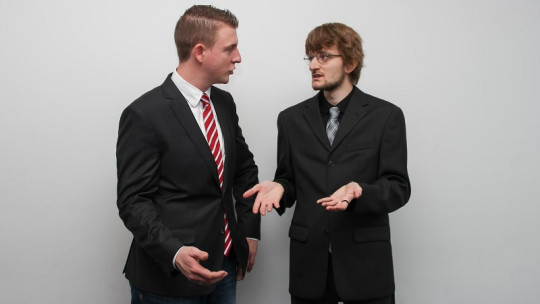
There is a lot of talk about toxic people, referring to those who negatively influence their environment and those around them.
It seems relatively easy to identify them, although it may not be so easy… What if you were a toxic person and you are not aware of it? Let’s look at several considerations and reflections in this regard to know how to address this issue.
Are you worried about the possibility of being a “toxic person”?
Despite what we have just explained, I think it is important to make a clarification and that is not to talk so much about toxic people as about toxic behaviors
This needs to be clarified because it may happen that someone is going through a streak of toxic behavior directed towards others, without this meaning that they always have to be a toxic person. On certain occasions, when we are overcoming a significant life problem (a loss, an addiction, a moment of various changes, etc.) and we feel unbalanced, in a vulnerable situation, we may be acting in ways that are difficult for our immediate environment
Our first conclusion is that, rather than talking about toxic people, we will talk about toxic behaviors or toxic behaviors. The difference is also based on the danger of labeling people, since when someone is told “you are…” they are being placed a burden that is difficult to get rid of and that conditions many behaviors in the future, since these mandates end up justifying behaviors; “Since I am such a thing, I behave accordingly.”
We are not always aware of what we cause in others and, as if this were not enough, we also tend to attribute to others the lack of empathy or understanding for some situations that bother us, hurt us or seem unfair towards us. Becoming aware that we are going through a bad streak or intense emotional difficulty will allow us to realize this and face the shortcomings that we detect.
Personality traits associated with toxic behaviors
At the base of toxic behaviors we find some personality traits such as egocentrism or narcissism Both traits are not the same. The self-centered person tends to think that his or her needs and interests are more important than those of others. As a general rule, as we develop as human beings, egocentrism is reduced, since it is usually very present in childhood and even in adolescence.
The narcissistic person has a great need to feel the approval and admiration of others and it is very difficult for him to empathize with what others feel; You can feel superior to others, and these appreciations translate into behaviors that are difficult to tolerate.
The tendency to victimize is another indicator of acting towards others in a toxic way. This happens because, in many cases, victimizing behavior provides direct or indirect benefits to the person who exercises it. It is the case that the events suffered become the letter of introduction of that person, in a demand for attention and permanent care and can exercise emotional blackmail towards others s.
Closely related to this behavior would be the permanent pessimistic view, or constantly assuming the worst that can happen. The tendency to expect negative events to occur and for their consequences to trigger more negative aspects is a tendency typical of toxic behaviors.
It is a frequent learning that we give more value to the bad than to the good that surrounds us, Focus on the negative because it usually attracts more attention and, in this way, we develop a tendency to self-lament, to a certain helplessness or to generalize towards the negative with expressions such as “everything goes wrong for me”, “I can’t do anything to avoid it”. This pessimism is harmful because it generates stress, frustration, a tendency towards depression, lack of assertiveness and other consequences that can be toxic towards others.
Another aspect that may be present is more or less frequent unhappiness, clearly related to pessimism and the tendency to victimization. Unhappiness is nourished by this catastrophic vision, by valuing the bad things that happen and feeding the belief that we cannot do anything to be happy, when what we have had to experience is so negative. Unhappiness favors complaining, which is a highly toxic attitude towards others, and also distrust, which produces the same effect.
How can we correct our own toxic behaviors?
The first step is to realize this, Become aware that we are generating discomfort in the people around us and assume it from responsibility not from guilt.
Responsibility allows us to make behavioral changes, it encourages us to undertake improvement or correction actions. It is essential to change the focus and strive to find something good in our lives, which there is. Learn to open your perspective and broaden your focus to see beyond.
In many cases it will be necessary to ask for help, both to people in the immediate environment and to a specialized professional. We will have to learn to accept the limits that are placed on us regarding these toxic behaviors and admit that this is also a way to get help. Whatever the case, it is necessary to face it, not run away waiting for the bad streak to pass and the matter to resolve itself. That usually doesn’t work.








